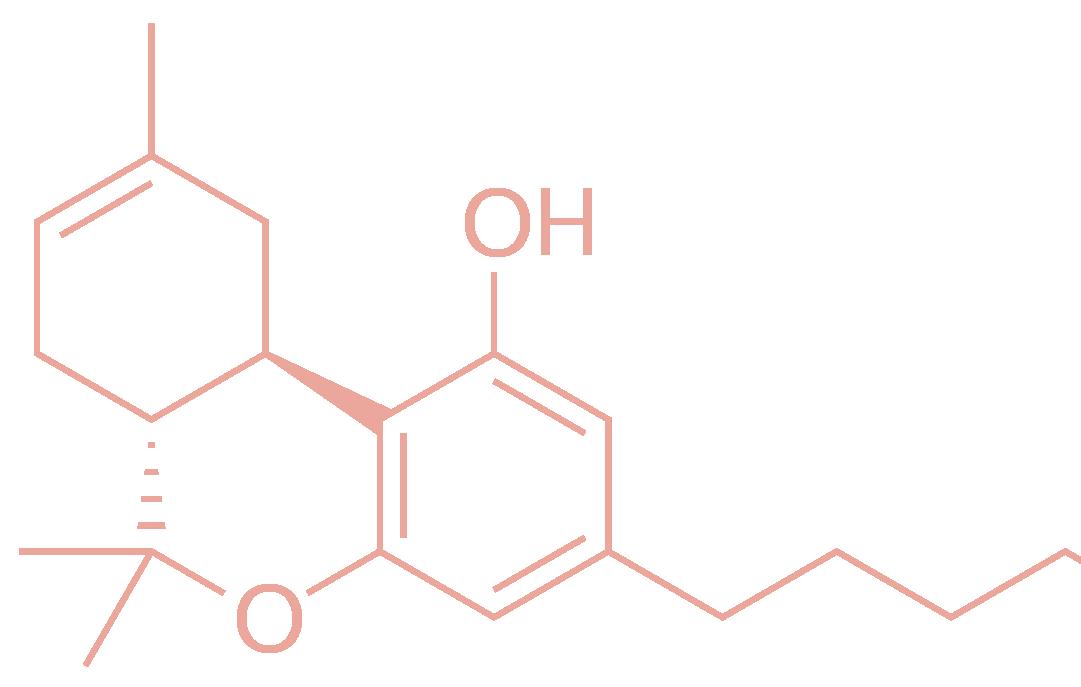CANNACURIOSITY
delta 8 DECIPHERING
TH E F O L L O W IN G A R E EX C ER P T S FR O M T H E P L AI N JANE BLOG, A LEADI NG CB D HE M P F L O WER C O MPA N Y O FFER I N G MANY AFFORDABLE P RODU CTS, A N D THE O R IG INA L W R I T ER I S S I M I M UD A L I AR.
W HAT IS IT? Recently we’ve seen the rise of delta-8 THC making its way across social media. It seems like more and more cannabis enthusiasts are intrigued by this ‘new form of THC. For those new to the world of cannabis science, the THC we know is called delta-9 Tetrahydrocannabinol. It is a phytocannabinoid produced by the marijuana cultivar Sativa, and it’s responsible for the psychoactive effects we associate with cannabis use. Delta-8 THC, on the other hand, is a by-product of delta-9 THC. In other words, when a plant metabolizes delta-9 THC (think of it as a plant version of digestion), you get small, minuscule amounts of delta-8 THC. This means that delta-8 THC is indeed a psychoactive compound, but it’s a lot less potent when compared to delta 9.
H OW LON G D O E S IT L A ST? While delta-8 THC does get you high, it’s essential to keep in mind that many factors determine how long its effects will last. For example, a veteran marijuana user who uses potent cannabis (containing D9 THC) may find that the impact of a delta-8 high only lasts 30 to 40 minutes. On the other hand, a person trying D8 products for the first time may notice the effects lasting for more than 60 to 90 minutes.
What are the effects?
Yes, delta-9 THC can indeed make a person high. In fact, that’s why they’re so popular. As delta-8 THC shares a similar chemical structure to that of delta-9 THC, it can elicit similar psychoactive effects. Now, the psychoactive effects of this cannabinoid will not be as pronounced as the delta-9 THC. But, it can indeed produce some reliable effects. According to our research, delta-8 THC tends to result in a more cerebral high characterized by bouts of euphoria, joy, and anxiety relief.
H OW DO E S I T WO R K? The endocannabinoid system has two major receptors, CB1 and CB2 receptors. CB1 receptors are distributed throughout the central nervous system, while CB2 receptors are found throughout the peripheral nervous system, the gastrointestinal tract, and the immune cells. So, how does delta-8 THC affect these receptors? Well, delta-9 THC is a partial agonist for both CB1 and CB2 receptors. In other words, its high affinity towards these receptors tends to result in the mediation of one’s mood, consciousness, ability to feel pain, etc. However, the effects produced by delta-8 products differ from delta-9, as delta-8 THC has a stronger affinity towards the CB2 receptors. On the other hand, delta-8 THC binds weakly to CB1 receptors.
START LOW AND GO SLOW WHENEVER EXPERIMENTING. LEGISLATION ON DELTA-8 CONTINUES TO EVOLVE. FIND OUT MORE AT PLAINJANE.COM.
CANNACurious
5









